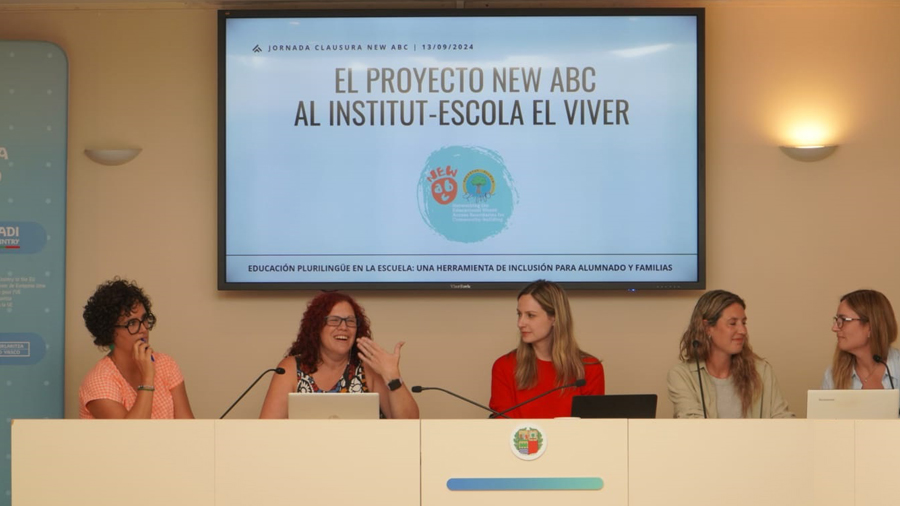New tools for a more inclusive and plural education in Europe
Researchers from the Department of Translation and Interpreting & East Asian Studies recently presented in Brussels the results of the NEW ABC project, focused on developing educational strategies and practices to promote the inclusion of migrant children and youth.

NEW ABC (Networking the Educational World: Across Boundaries for Community-building) provides new solutions through education for the successful inclusion of migrant children and young people in all spheres and dimensions of life. The project included the participation of 13 partners from nine European countries and was coordinated by the University of Bologna. The UAB researchers are Mireia Vargas, Marta Arumí, Gema Rubio, Claudia Vallejo and Valeria Tonioli.
Acting within the framework of participatory action research, the project partners collaborated with schools, associations, local institutions and NGOs to build and test innovative practices and methodologies in formal, informal and non-formal education contexts. During the four years of the project, nine pilot actions were tested, and then re-tested in different countries to ensure their effectiveness and adaptability in various sociocultural contexts.
The co-creation of the activities took into acount the ideas and perspectives of all participants, including students and teachers. Their ideas, needs and sensitivities were respected and placed in the centre of the co-creation process, helping thereby to create tailor-made educational solutions and avoid imposing top-down ideas and activities.
The NEW ABC approach has been particularly effective in giving visibility to the ideas of children and young people, including those with a migrant background or growing up in a socioeconomically disadvantaged context. This active participation approach has given way to the creation of numerous synergies among different social actors, both horizontally among teachers from different schools, and vertically among children from a certain school and local policymakers.
One of the main achievements of the project has been the creation of a virtuous circle: thanks to the active participation of teachers and educators throughout the process, the co-created activities continue to be proposed and adapted in various educational contexts, even after the end of the project. According to researchers, this demonstrates the long-lasting and sustainable impact of the project and represents a model of good practices that can be replicated in the future.
“The nine actions have proven to be versatile and effective, and provide concrete tools to address the educational challenges of our times”, Mireia Vargas points out. “The project represents an important step forward in the field of plural and inclusive education, demonstrating how collaboration and co-creation can produce tangible and long-lasting results”, she adds.
The UAB researchers have repiloted two of the actions, and have coordinated the working group in charge of adapting the actions to different contexts. The first action, entitled Teacher training and family involvement in pluralistic approaches to language education, was an activity conducted in the Institut Escola El Viver and served to identify the students’ native languages and integrate them into the learning context. The second action, entitled Together we learn our worlds, was part of an after-school activity under the UAB’s Croma programme. It focused on recognising and respecting language diversity of children and young people, not only in school, but also in other local contexts.
The consortium now looks forward to the dissemination and wide adoption of the activities and tools developed as a sure step toward the creation of more supportive and inclusive educational systems in Europe.
All activities and materials created can be freely accessed on the NEW ABC platform, with resources that teachers and educators can use in their teaching and training practices.